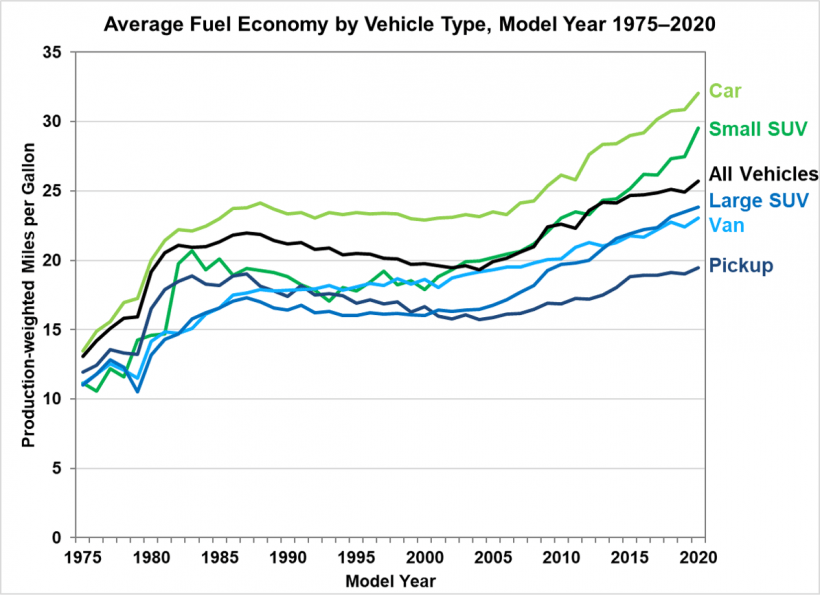For whom an SUV is not a good a choice
Are you considering investing in an SUV? They may be popular, but they're not necessarily a good choice for everyone. Before jumping into a purchase, it's crucial to understand the advantages and disadvantages of an SUV so that you can make an informed decision. In this article, we'll discuss why having an SUV is not always the best option and emphasize that it's not a one-size-fits-all solution when choosing the right vehicle for your lifestyle.
1. City dwellers
Trying to navigate city streets and parking in an SUV is no small feat. Between the size, weight, and fuel efficiency of SUVs, they can be difficult to maneuver in tight urban areas. The large frame makes it hard to fit into standard-sized parking spots while also often causing visibility issues at busy intersections.
For those who live in a city, finding the right vehicle can be tricky. While SUVs may have enough room for your family or cargo needs, they are typically not the best option for those looking for easy maneuverability. Those wanting more agile handling should look for smaller sedans or even hybrids that have greater fuel economy yet still possess enough cargo space for their everyday needs.
2. Budget-conscious buyers
When it comes to budget-conscious buyers, there's no denying that SUVs are more expensive than smaller cars or sedans. Their higher sticker price can be a major deterrent when car shopping on a budget. But the cost of ownership doesn't stop at the purchase price - SUVs also have higher maintenance and repair costs that need to be taken into consideration.
The most common maintenance tasks for an SUV include changing oil and filters, brake pad replacements, spark plug replacements, air filter changes, and tire rotations. These all add up - especially with larger vehicles like SUVs, which require more frequent service intervals than their smaller counterparts. Tires are another area where SUV owners will likely spend more money due to the increased size of the tires needed for these heavy vehicles.
3. Solo commuters
It's important to take into account that SUVs are designed with larger passenger capacities in mind. If you usually drive by yourself or with one other person most of the time, it might be worth considering some of your smaller vehicle options for better fuel economy and more agile handling on the roads. After all – why spend extra money on a bigger car if you don't need it? Ultimately, your needs should come first when choosing a car that fits your lifestyle best.
Credit: energy.gov
4. Environmentalists
These days, the popularity of SUVs has skyrocketed, making them one of the most sought-after kinds of cars. Unfortunately, many drivers don't realize before purchasing their new vehicle that SUVs are known for having poor fuel economy and high emissions. Both of these factors contribute to air pollution and climate change on a global scale. According to recent studies, SUVs emit up to 25% more carbon dioxide than smaller cars. As such emissions are released into the atmosphere, they impact our environment and the health of those who live in it. Air pollution from vehicles can lead to respiratory illnesses or even worsen existing conditions like asthma and allergies. The effects of air pollution also reach beyond human health - it has also been linked to climate change.
5. Those with mobility issues
Having mobility issues can make certain activities, such as getting in and out of SUVs, demanding. It is crucial to recognize that SUVs own higher ground clearance than other vehicles on the market. This feature makes it more challenging for people with disabilities or limited physical abilities to access the auto due to its height. Moreover, those who need a wheelchair or scooter might find it problematic to navigate their way into an SUV without assistance.
It is critical that manufacturers recognize the need for accessibility when designing vehicles and include features that are helpful for those with limited mobility. Some suggested solutions include adding ramps or lifts so those in wheelchairs can easily enter and exit an SUV safely. It's also beneficial for those with mobility challenges to look into parking options that provide more space around the vehicle so they can get in and out of it without difficulty.
To sum up
In conclusion, an SUV may not be the right choice for everyone. It's important to consider your lifestyle, budget, and driving habits before making any large purchasing decisions. Ultimately, an SUV is a great option for those who need extra space and require excellent off-roading capabilities. However, if fuel efficiency and affordability are more important than cargo space and ruggedness, you might want to look into a smaller car or crossover instead.

